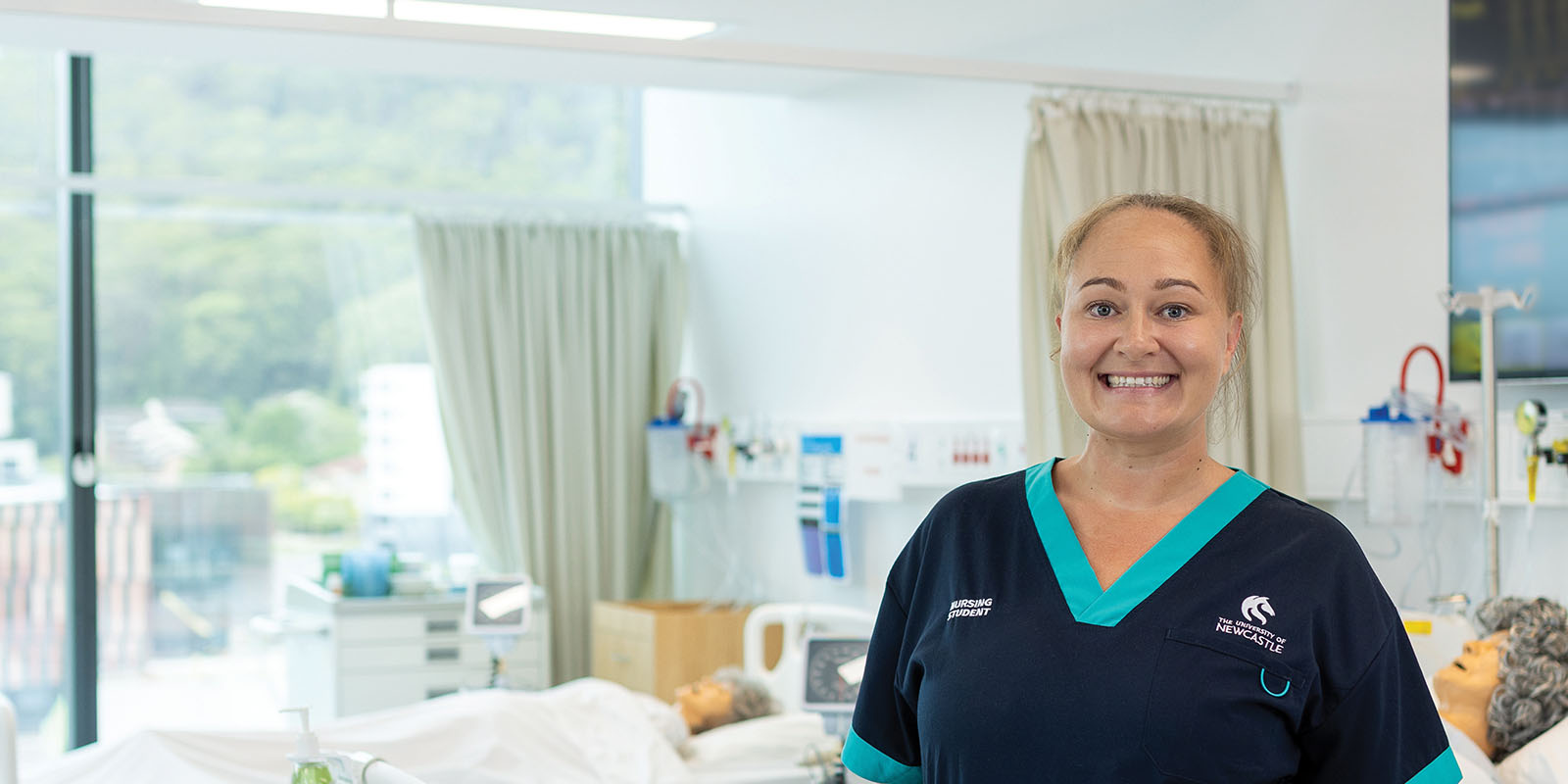
Why study health and medicine
A long and healthy life is something we all strive for. The field of health and medical services is driven by passionate and caring people, motivated to improve, extend, and even save lives. Our ageing population and increasing rate of chronic illness means that we need more health professionals to provide life-changing treatment and preventative care. From researchers in labs, to doctors, midwives and nurses in hospitals and clinics, pharmacists, radiographers, physiotherapists and everyone in between – there’s a wide range of dynamic, exciting professions to choose from.
Health and medicine degrees
Each University of Newcastle degree has a set of entry requirements that you must meet before you can enrol. This includes both academic requirements and skills in English. The entry requirements for each degree offered by the University of Newcastle can be found on the individual degree information page.
Once you have selected the degree you wish to study, you should apply directly to the University of Newcastle online through the Year 12 Early Entry program or Direct Entry for non-school leavers, or through the Universities Admissions Centre (UAC).
There are two main intakes each year for undergraduate programs:
- The major intake period for all undergraduate programs is Semester 1. From 2026, Semester 1 will commence in January.
- Some programs are available in Semester 2. From 2026, Semester 2 will commence in August.
Find out more about our new Academic Calendar.
We recommend exploring our Admission and Entry pages, where you can discover entry options, valuable tips, and advice that applies to your situation.
Key dates
Stay informed about semester start and finish dates, examination periods, recess dates and much more.
Events
The University of Newcastle offers events for you to attend throughout the year both online and in person where you can explore studying at our University, meet with potential employers, learn more about topics of special interest and further your education with workshops.
Open days
Come and see us on campus, take a tour and chat with current students and academics and find out all you need to know about uni life.
We provide support for students from every background, including students under the age of 18, LGBTQIA+ students, Indigenous students and international students.
Study a health and medicine degree 1:39
A long and healthy life is something we all strive for
Studying health and medicine. The field of health and medical services thrives on passionate and caring people, motivated to improve, extend, and even save lives.
Start an undergraduate degree with us. There’s a place for you.
Download your free Undergraduate guide
a confirmation email shortly.
Student information
Browse through useful information to help you get started on your new journey. Learn more about our vibrant uni culture, student accommodation options, and much more.
Year 12 Early Entry
Students completing the NSW HSC can receive an offer before the HSC exams begin.
Read more
Non-school leaver admission to uni
Information for starting your university journey if you've had a break after high-school.
Read more
Scholarships
We have over 100 scholarships available which support around 1000 new students every year.
Read more
Student Living
Living on or off campus, make lasting friendships and grow both personally and academically.
Read more
Student Support Services
Find out how we can make your time with us smooth and enjoyable.
Read more
Student Life
Enjoy great spots to live, learn, work and play! Get involved and check out what's happening.
Read more
Browse degrees by study area
The University of Newcastle acknowledges the traditional custodians of the lands within our footprint areas: Awabakal, Darkinjung, Biripai, Worimi, Wonnarua, and Eora Nations. We also pay respect to the wisdom of our Elders past and present.